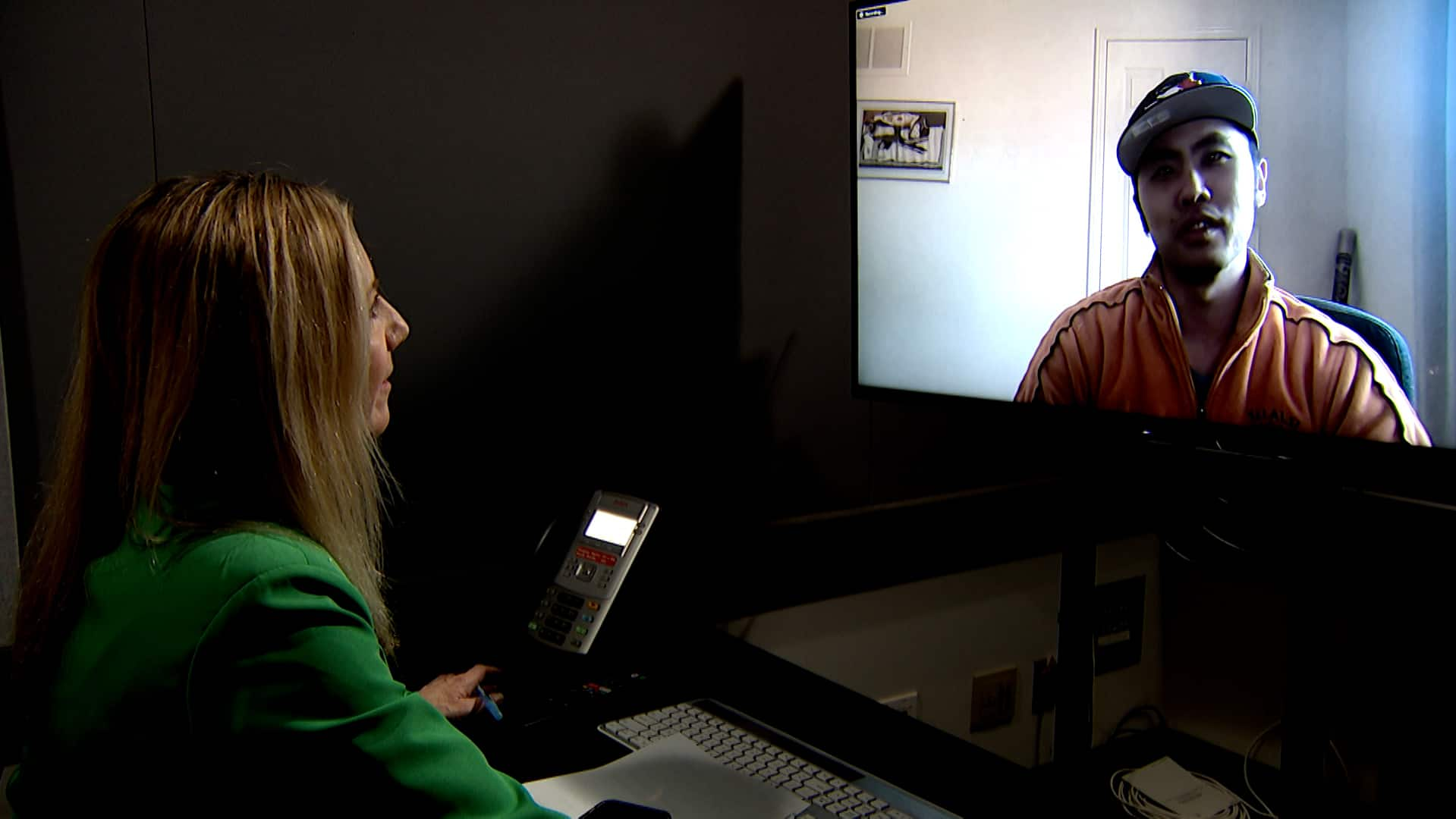It’s been four weeks since Carl Zhou first tried to withdraw his deposits and winnings on the Ontario Lottery and Gaming Corporation sports betting platform, Proline, he says.
Since signing up during a promotion in November, the Mississauga resident says he’s made successful bets on college basketball, hockey and football games. But despite submitting all the necessary paperwork and multiple chats with customer service, he says he isn’t any closer to receiving his money.
“I’m a little bit disappointed at the lack of response that I’ve been getting,” said Zhou, adding he’s on competing platforms and hasn’t run into similar problems there.
“Usually … if you have a problem with this type of issue, you report it to some like, government entity. But in this case, this is the government.”
Two users of OLG’s sports betting platform Proline say they have been waiting weeks to claim their earnings. In both cases, the bettors have no idea when they will receive their money. CBC’s Lorenda Reddekopp has more.
Zhou is one of multiple OLG Proline gamblers waiting indefinitely since roughly last month to claim their winnings and who are now turned off of using it as their main digital gambling platform as a result. OLG says the delays are due to having to verify a wave of new accounts, but one expert says they show the Crown corporation is failing to adapt and compete with private companies.
In an email to CBC News, OLG wouldn’t confirm how many people are affected by the delays due to the “highly competitive nature of Ontario’s open gaming market,” according to OLG spokesperson Tony Bitonti.
The corporation says it registered “a significant influx of new players” ahead of last month’s Super Bowl and is working through a backlog of bank account verification requests — a process required by the its regulator, the Alcohol and Gaming Commission of Ontario.
“We appreciate the patience and understanding of our customers while we work diligently to review and subsequently verify bank accounts as quickly as possible,” Bitonti said. “OLG prides itself on always paying its winners and also carefully complying with regulatory standards.”
The Office of the Ombudsman of Ontario confirmed to CBC Toronto that the OLG falls within its jurisdiction, and said in an email that anyone affected can reach out.
OLG had no trouble accepting money, says bettor
OLG also won’t say how many people signed up as a result of the promotions it ran ahead of the Super Bowl, but Bitonti said the OLG is “pleased with customer response” to what it offered.
One past promotion on its website suggested people could get over $500 in bonuses after betting $50.
That campaign was what ultimately convinced Waterloo, Ont., resident Val Strambu to make a Super Bowl bet. After hearing about sports betting from his daughter and her partner, he told CBC News he decided the return was “worth the gamble,” particularly with a “trusted” brand like the OLG.
A new study from CBC’s Marketplace and researchers in the U.K. finds that sports fans are exposed to gambling advertisements about three times a minute during a sports broadcast.
But while Stramu says he won over $1,000 from his bet, he’s been waiting over a month to claim it. He says he doesn’t understand why verifying his bank information is taking this long when OLG had no trouble accepting his money.
“Opening the Proline account was a breeze,” he noted.
“You took my money. You should be able to pay me back the same way,” said Stramu, adding he never intends on betting again.
Delays partly due to lack of resources: expert
Michael Naraine, a sports management professor at Brock University, says companies do need to verify banking information to ensure earnings aren’t going to organized crime or other nefarious activities.
Taking money from consumers isn’t as much of a concern since it will ultimately be used for wagering purposes, he said.
“The probability is the consumer’s going to lose that money and the money’s going to stay within the ecosystem,” he said. “It’s once they’re trying to withdraw that money out of the ecosystem … the operators have to dot their I’s and cross their T’s as it relates to where’s this money going.”
But while the delays may be necessary — particularly for a Crown corporation, which has less resources than private companies — they will drive customers away and ultimately risk pushing the OLG out of relevance, he said.
“The value proposition that OLG makes to the marketplace of why Proline needs to exist is because 100 per cent of the profits go back into the community. That’s not a good enough value proposition for the end consumer in 2024,” he said.
“In this attention economy, it’s a very instantaneous, synchronous, fast, expedited process and paradigm and the OLG cannot keep up with that.”
Meanwhile, Zhou says he’s hoping for more transparency and regular updates on when he can expect the problem to be resolved. And until his money arrives, he says, he’s hesitant to use OLG’s services.
“As of now, I don’t have any confidence.”


